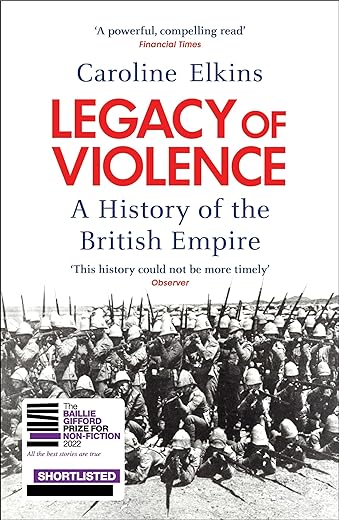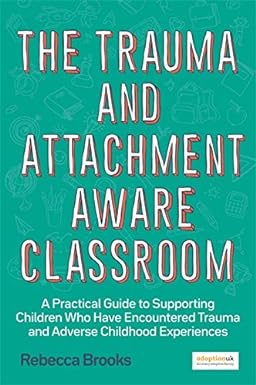Legacy of Violence: A History of the British Empire
£13.00£16.10 (-19%)
A NEW YORK TIMES, NEW STATESMAN, HISTORY TODAY AND BBC HISTORY MAGAZINE BOOK OF THE YEAR
‘Masterly… This book is dynamite’ – ROBERT GILDEA, author of Empires of the Mind
**Shortlisted for the Baillie Gifford Prize**
A searing, landmark study of the British Empire that lays bare its pervasive use of violence throughout the twentieth century.
Drawing on more than a decade of research on four continents, Caroline Elkins reveals the dark heart of Britain’s Empire: a racialised, systemised doctrine of unrelenting violence, which it used to secure and maintain its interests across the globe.
When Britain could no longer maintain control over that violence, it simply retreated – and sought to destroy the evidence. Legacy of Violence is a monumental achievement that explodes long-held myths and deserves the attention of anyone who seeks to understand empire’s role in shaping the world today.
‘Not so much a history book as a book of historical significance’ BBC History Magazine
‘Riveting’ New Statesman
‘Crucial…as unflinching as it is gripping, as carefully researched as it is urgently necessary’ Jill Lepore, author of These Truths
Read more
Additional information
| Publisher | Vintage (7 Sept. 2023) |
|---|---|
| Language | English |
| Paperback | 896 pages |
| ISBN-10 | 0099540258 |
| ISBN-13 | 978-0099540250 |
| Dimensions | 12.9 x 5.4 x 19.8 cm |











by steve
This is refreshingly honest, it does not avoid the truth of how the British empire brutally supressed dissent, people who simply desired self determination. It is time for British historians to change their narrative and inform people how harsh the British empire ruled over so many people who wanted to be treated as equals. This is uncomfortable reading for some as many of us were taught how the empire did so much good for the world.
by Dawn J
Informative book, learned a lot I didn’t know about our past as a nation
by Goulden
“Legacy of Violence” is essentially a critique of British imperialism. Much of this work – though not all – is very well researched and the view it offers of the racism and violence that lay at the heart of the British empire is entirely convincing – as is the author’s suggestion that its legacy includes, in the 21st century, the kind of exceptionalist and racist attitudes that have produced Brexit and the Windrush scandal. Two weaknesses are worth mentioning. First, there is a degree of undisguised nastiness in the author’s description of pretty-well every historical British figure to whom she refers regardless of whether or not they were committed “imperialists”. Her obvious distaste for the country and its people spills over occasionally into intemperence. A second weakness exemplifies the first – which is her mischaracterization of certain figures, among them T.E Lawrence (Lawrence of Arabia) whom she dismisses with cheap insults that are not based on references to any of the multiple scholarly works on Lawrence – except one whose title is given incorrectly (which makes one suspect that the author hadn’t read it). Ironically, Lawrence would, I suspect, have largely agreed with Professor Elkins’ dark view of British imperialism. Finally, missing from Professor Elikins account are British colonial policies and activities in North America – especially prior to 1776 – but also up to and including 1812.
by Stephen Dorril
I so much wanted to like this, to be impressed by it but I am afraid I wasn’t. It all kind of floated by me. There was very little that I didn’t already know (didn’t Ian Cobain do a lot of this in his book). I was waiting for the new information and kept waiting. The bulk of the modern era is about Palestine, Malaya, Kenya and Cyprus, well-trod and other places not covered at all and with quite a lot missing. Essentially, where was the violence? The Military Intelligence officers dunking Jewish heads into buckets of water, Special Branch officers in Kenya killing their prisoners by strangling them with piano-wire as one told me or the MI6 officer in the Middle East inventing a hook for the stomach to use on those he tortured. There are some vague attempts to connect the dots such as the Aden gang arriving in Northern Ireland but no detail. It didn’t come together for me as a real blast against the Empire. It dribbled out in the end. Much too genteel.
by Georg Glatz
Whenever the topic of British colonies comes up the supposedly “benevolent” character and many relativistic comparisons come up, trying to justify millions of deaths and endless suffering by many people who never were asked whether they wanted to be “civilized” by their kind overlords from the British Isles.
Based on immense amount of research Prof. Elkins points out the systematic nature of legalized abuse, murder and suppression in British colonies across the world over more than a century and the many attempts by its beneficiaries to put a very positive spin on it, internally and abroad until today (see Boris Johnson’s recent “Global Britain” speech). It’s breathtaking to justify or relativize anything positive about a system where basic legal protections were denied to hundreds of millions of people because of their race, skin color or opposition to colonial suppression (see Boer wars). Also if millions die through famine happening during your watch and when you were busy plundering a country, there is really no way you can absolve yourself from any responsibility.
With many school systems still glossing over or relativizing the abuse and murder that had been systemic in British colonies (the great Commonwealth), this book undoubtedly will find many shrill critics who do not want to have their nostalgic- or nationalistic views disturbed. But similar to many historical topics that have been conveniently overlooked in the West (see extinction of entire native populations, state sponsored opium trade, or toppling of democratic governments in South America or Middle East) hopefully this research will help open up the door further for a more fact based and realistic general opinion on the true nature and disastrous human cost of British colonial violence and oppression. Stopping short of reparations (which the current benefactors of the colonial system try to avoid at all cost for obvious reasons), a truthful representation in education and media is the least that should be done to do belated justice to its many victims.
by Bob
A nice counterbalance